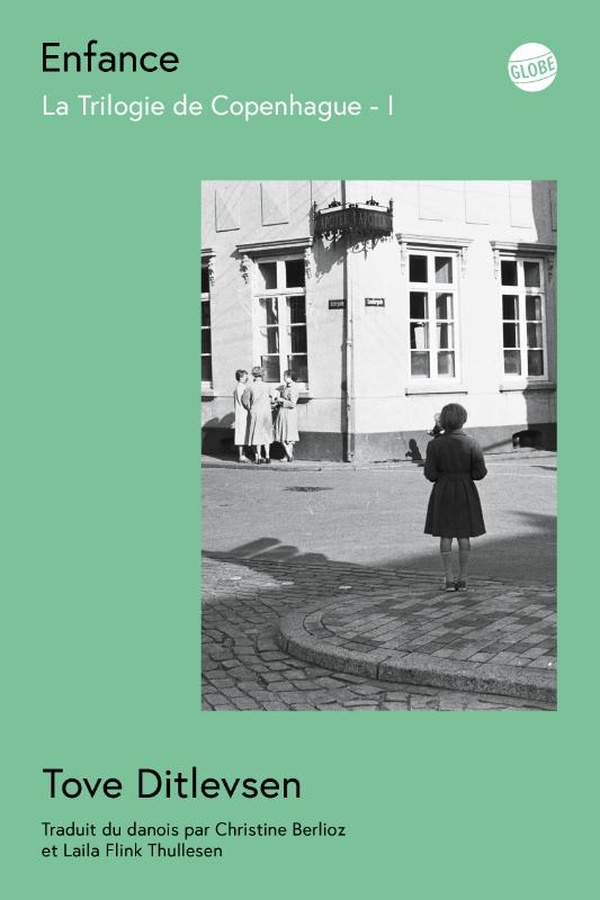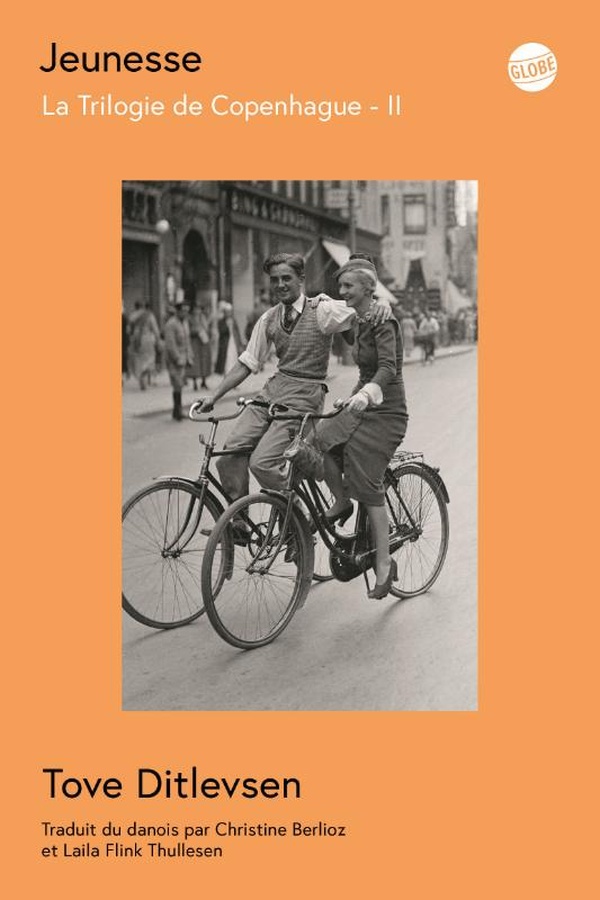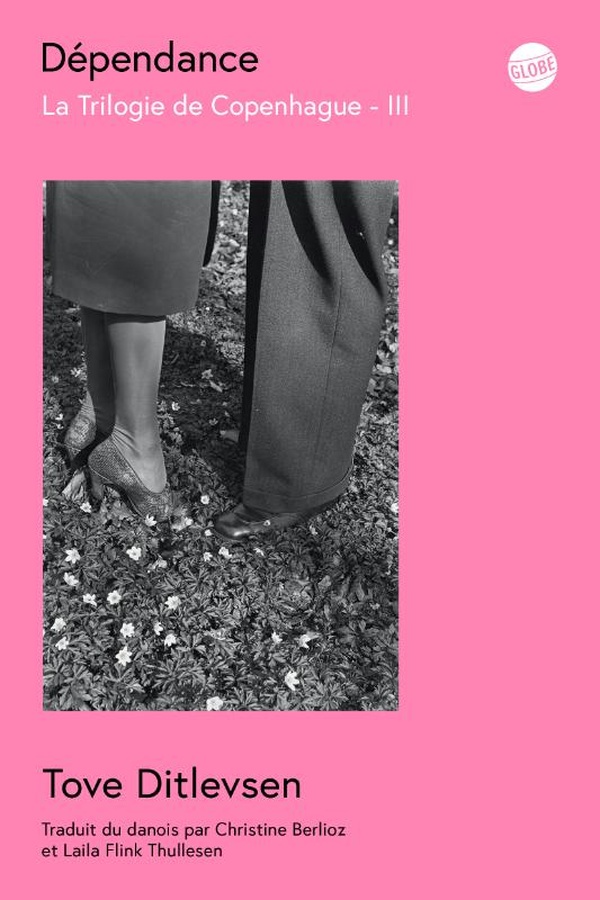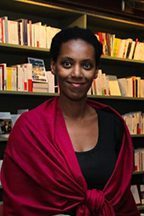La Trilogie de Copenhague by Tove Ditlevsen
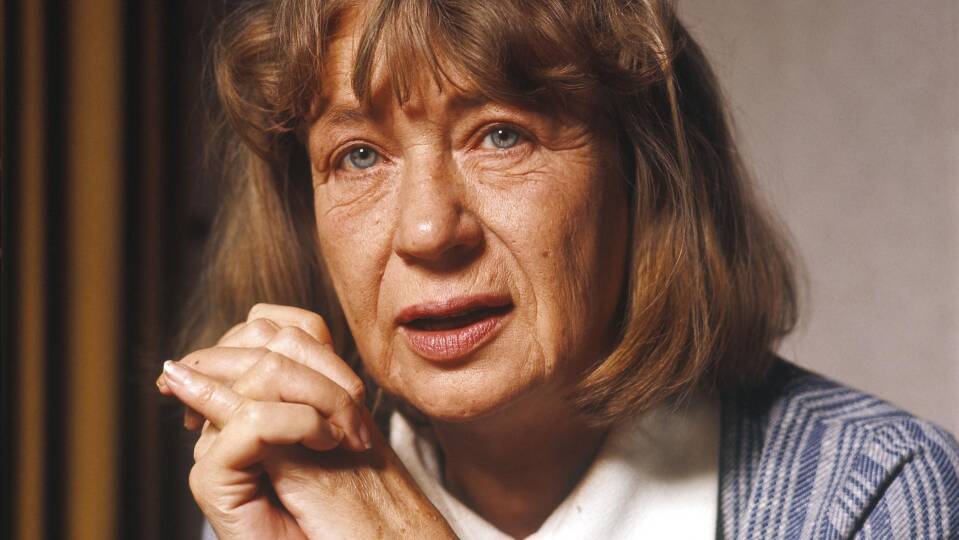
Long before feminist theory had a name in Denmark, Tove Ditlevsen was living it. In La Trilogie de Copenhague, she maps with aching precision the making—and unmaking—of a woman under the weight of societal expectation, class constraints, and male control. From a childhood steeped in observation to adult years shadowed by manipulation and dependence, Ditlevsen chronicles the female experience with a clarity that is both devastating and luminous. As intimate as a diary and as sharp as a scalpel, this trilogy is not only a cornerstone of Danish literature—it is a feminist landmark that still resonates, unsettlingly, with the present.
Its first volume, Enfance, takes place in the proletarian neighborhood of Vesterbro, Copenhagen. We follow Tove as she grows up and observes in great detail all that is happening around her, from her parents’ home, in her building’s courtyard and on the nearby streets.
Like a sponge, Tove absorbs everything: the dynamic of relationships, power struggles, frustrations, and desires that everyone projects onto her. The only pleasure/desire the girl can claim her own is writing. Thus, the antagonism she would struggle with throughout her life — the yarning to conform to her times’s social norms and her desire to write — takes shape at an early stage, and its mechanism is described with great subtlety in the second volume, Jeunesse.
Tove’s desire for “respectability” makes her vulnerable to the agenda of people surrounding her parents, girlfriends, successive husbands — the later espcially will never stop pressuring and manipulating her. This becomes obvious in the third volume, Dépendance. Under the false pretense of acting for her well-being, the men in Tove’s life try literally everything in their power (blackmail, libels, unwanted pregnancies) to control her and keep her in a situation of dependency. The Danish title of this third volume is Gift, which means marriage or being dependent: difficult to be more on point.
Reading La Trilogie de Copenhague in the midst of the Gisèle Pélicot trial, one is gripped by a kind of vertigo, so meticulous is the description of the mechanism of the subordination of women by men in the institution of marriage, a mechanism not only accepted but forced by society, and which seems to have remained intact to this day. That’s what this autobiography is all about, and it’s easy to see why Danish feminists have made it their spearhead. The amazing musicality of Tove’s poetic, humorous and unflappably honest prose makes this experience even more unforgettable.
La Trilogie de Copenhague, Enfance, Jeunesse, Dépendance by Tove Ditlevsen, translated from the Danish by Christine Berlioz and Laila Flink Thullesen, éditions Globe,
Credit image: Maison du Danemark, Paris, DR.
Reading List
“You can’t get out of childhood, and it clings to you like a bad smell. You notice it in other children — each childhood has its own smell. You don’t recognize your own, and sometimes you’re afraid that it’s worse than others’. You’re standing talking to another girl whose childhood smells of coal and ashes, and suddenly she takes a step back because she has noticed the terrible stink of your childhood. On the sly, you observe the adults whose childhood lies inside them, torn and full of holes like a used and moth-eaten rug no one thinks about anymore or has any use for.”
Enfance (Childhood) is both the title and the heart of the first volume of Tove Ditlevsen’s autobiography. For her, there’s nothing innocent about childhood. Since birth, the little girl has shared the apartment’s only bedroom with her parents and brother. Having learned to read and write before she even started school, she knows all about the world of adults: their pleasures, their loneliness, their frustrations, their variable-geometry morals. In her two-room apartment in the proletarian district of Vesterbro, there’s no room for privacy. Thus, Tove hides the notebook in which she writes her poems in her panties.
The father, a socialist and avid reader, is a blue-collar worker with long periods of unemployment. His mother, a housewife, hates housework and child-rearing. Isolated, with no hope of escaping a life of misery, she willingly takes out her frustration on Tove. For Ditlevsen, childhood is above all a state of great vulnerability, from which one must escape as quickly as possible, and by any means necessary, or risk losing one’s skin.
“Wherever you turn, you run up against your childhood and hurt yourself because it’s sharp-edged and hard, and stops only when it has torn you completely apart. It seems that everyone has their own and each is totally different. My brother’s childhood is very noisy, for example, while mine is quiet and furtive and watchful. No one likes it and no one has any use for it.”
In a minimalist language with instantly recognizable accents, Tove Ditlevsen paints the loneliness of those around her, and her power of evocation is striking. Writing is the only activity that allows her to escape the sadness that surrounds her. She’s convinced it will be her salvation.
Despite her precocious talents, her parents oppose Tove going to high school. Thus, she starts an apprenticeship as a maid, her father repeating at nauseam that “girls don’t become poets.” Nevertheless, Childhood ends in a decisive victory for the teenager: her need to write has replaced her thirst for maternal love. Not only is Tove no longer dependent on her mother’s moods, but she dreams of leaving home as soon as possible.
In this second volume, Tove achieves several of her most endearing dreams. She becomes financially independent, starts a job as a janitor and moves up the social ladder to become a secretary in a small firm. Most importantly, she starts publishing her poetry.
Jeunesse (Youth) narrates her social ascension, as she moves out of working class Istedgade, into wealthier neighborhoods while the Nazis come to power in Germany, with the growing threat of Germany invading DK.
Tove enters adulthood in a mixt of excitement and fear. Her girlfriend Nina teaches her the basics of seduction, how to dress, how to behave, how to speak. Attracting men’s attention becomes Tove’s priority, and the young woman begins spending more time in cafes rather than writing at her desk.
Her encounter with Viggo F. Moller will bring her back to the path of literary creation. Twenty five years her senior, Viggo F. owns a small press and publishes young poets. His help is instrumental to her becoming a published poet.
With her razor sharp wit, and lean prose, Tove states clearly that she’s seen in Viggo F. a savior more than a lover, and that his social position was the reason for her attraction to him.
The Danish title of this third volume is Gift, which means marriage or being dependent: difficult to be more eloquent. It covers Tove’s first three highly dysfunctional marriages, first to Viggo F., then to immature and alcoholic Ebbe Munk, with whom she had a daughter, and last but not least, to Carl a medical student who will become her third husband and dedicated drug dealer.
If Tove has managed every time to successfully free herself from her various emotional dependencies (mother, girlfriends, first two husbands), Carl, a true Machiavellian, will trigger an opioid addiction which will be her doom.
Dépendance (Dependency) offers some of the best writing about being on drugs ever: the elation, the diffuse happiness, the feeling of exiting one’s life, one self, is described with excruciating acuteness. But what differentiates Dépendance from others memoirs on addiction, is Tove’s attention to the women around her, and to their fate. Without any exception, all the women in The Copenhagen Trilogy have been broken by conjugal life, starting with her mother and aunt and extending to all her female friends. Men are weak, powerless beings who make their partners pay for their failures.
Reading La Trilogie de Copenhague in the midst of the Gisèle Péniteau trial, one is gripped by a kind of vertigo, so meticulous is the description of the mechanism of the subordination of women by men in the institution of marriage, a mechanism not only accepted but encouraged by society, and which seems to have remained intact to this day. That’s what this autobiography is all about, and it’s easy to see why Danish feminists have made it their spearhead.


